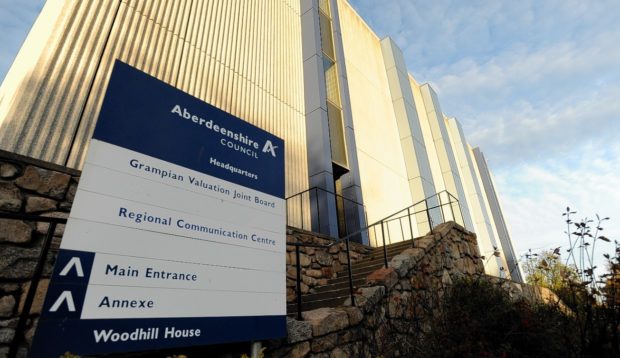Aberdeenshire Council has agreed on a plan to help it continue to carry out essential services despite a forecasted £30 million budget gap caused by Covid-19.
The authority’s new document has been created to guide it through challenges brought about by the pandemic, as well as other causes of concern such as Brexit uncertainty, climate change and funding problems in the coming years.
The plan, which was approved at a full meeting of Aberdeenshire Council held online yesterday, focuses on the three “pillars” of “people, environment and the economy”.
A report for councillors this week revealed the authority had £13.1m less that it should have had in September due to lost income, unexpected costs and undeliverable savings directly related to the virus.
The report feared the gap could increase to up to £30m by the end of the year.
At the meeting yesterday, council leader Jim Gifford said: “No-one could have predicted that our environment would be so earth-shatteringly challenged by a global pandemic, an event so significant and life-altering as to force us to swiftly and radically re-think our priorities along with our entire way of living and working.
“Our renewed council plan will more sharply focus on those services that are most essential to our residents, our local economy and our environment so that we can continue to prioritise service delivery to the areas that are most in need.”
Within the “people” pillar, the council will incorporate the “strategic priorities” of education, health and wellbeing the “environment” pillar will include the authority’s responsibility for infrastructure and the resilience of its communities and in the “economy” pillar it will provide a focus for the council on the areas of economy, enterprise and estate modernisation.
But during yesterday’s full council meeting Democratic Independent and Green Group councillor Martin Ford put forward an amendment to throw out the 2020 to 2022 council plan, arguing that it does not make sense.
The amendment, which argued the priorities “in no way correspond to the pillars to which they are allocated” and that the “vagueness, contradictions and inconsistencies in the plan mean the document would serve no useful purpose” was voted against by 61 to three.
